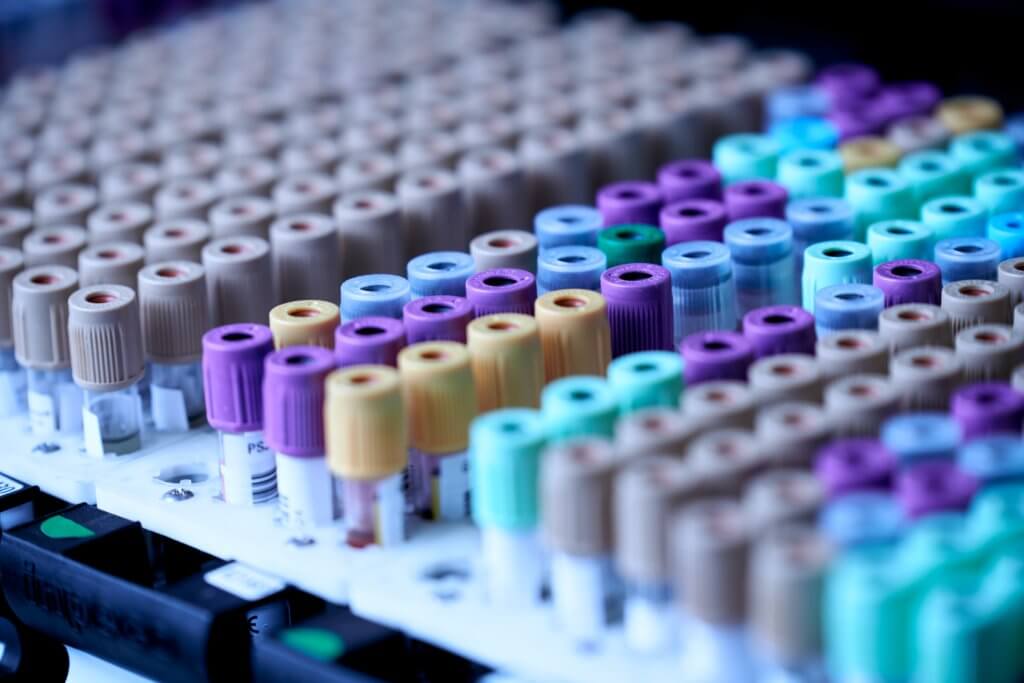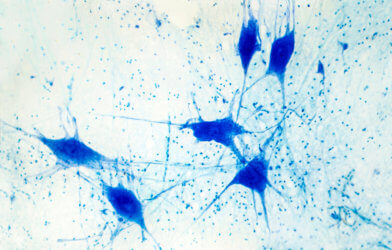If you hate going to the doctor, you’re going to love this “game-changing” news. An international team of scientists are cutting down all the pricking and prodding in doctor visits by creating a single blood test to find over 50 genetic diseases. They expect the revolutionary blood test to cut the time of diagnosis for neurological and muscular disorders from decades to days.
Many genetic diseases such as epilepsy are rare and do not show up later in your adult life. Some conditions are from unusually long DNA sequences in genes known as short tandem repeats (STR). Doctors have found people with STR in their genes hard to diagnose because of the complex symptoms it creates, the repetitive sequences, and limited genetic testing methods.
Multiple benefits for patient care
“This new test will completely revolutionize how we diagnose these diseases. We can now test for all the disorders at once with a single DNA test and give a clear genetic diagnosis,” explains study co-author Kishore Kumar, a researcher at the Concord Hospital in Sydney, in a statement. “It will help patients avoid years of unnecessary muscle or nerve biopsies for diseases they don’t have, or risky treatments that suppress their immune system.”
Some conditions found with the blood test include Huntington’s disease, fragile X syndrome, motor neuron disease, among others.
The blood test still has more trials to go through. Still, if it continues to be effective, patients will have access to earlier therapies, undergo fewer surgical procedures, and lower the number of drug side effects. Compared to other diagnostic tests, the new technique is quicker, cheaper, and more accurate.
The blood test should be available in 2 to 5 years if all goes well.
Blood test helps uncover rare, hard-to-diagnose conditions
One study participant, John, volunteered to take the blood test after experiencing balance problems during a ski lesson. Over the years, his symptoms worsened and made it difficult to walk without support. Despite a decade of testing, doctors could not figure out the cause of his condition. The blood test diagnosed him with a rare genetic disease called CANVAS which impacts the brain.
“It was reassuring to finally confirm my diagnosis genetically, and it’s exciting to know that, in the near future, others with these types of conditions will be able to get a diagnosis quicker than I did,” John says.
Using a single DNA sample from a blood sample, the test scans a patient’s genome using a method called Nanopore sequencing. “By unraveling the two strands of DNA and reading the repeated letter sequences – combinations of A, T, G or C – we can scan for abnormally long repeats within the patient’s genes, which are the hallmarks of disease,” explains Dr. Kumar.
The Nanopore gene sequencing device is compact, comparable to the size of a stapler. It costs about a thousand dollars which is cheaper than the current hundreds of thousands needed for current DNA sequencing tests.
“For patients like John, the new test will be a game-changer, helping to end what can often be a taxing diagnostic odyssey,” Kumar says.
The study is published in the journal Science Advances.
South West News Service writer Mark Waghorn contributed to this report.













WHAT ABOUT BLOOD TESTS FOR OTHER DISEASES?
I have what has been diagnosed as sensory neuropathy and small cell neuropthy. Mass General says that they can not treat disease till they know what is causing the the disease. I would be willing to be part of the study as my condition is getting much worse and getting to the point where I can not work anymore. Anything you can do would be much appreciated.
Regards Andy Troiano
362 North Plain Road
Housatonic, MA, 01236
[email protected]
Remember safe and effective? Millions of DNA samples were collected throughout the world in the guise of the China virus test. This test does not diagnose any disease this test determines if you share DNA traits of those who have disorders.
Look for denial of coverage from insurance companies and genetic culling of defective individuals.god help us all
Good job!
Get the test of lab and in to general use … SAP!
Sign me up!!! I would like to volunteer…
Now, the next step is to educate the doctors to consider this new technology.
It’s going to be very difficult to get affordable life insurance from now on, once the test becomes common.
Ding!
Something to think about is the negatives … in the time of selling people’s information. how dangerous could it be to give this kind of info and what are the safeguards from that happening?
Uh-huh. Sounds like the kind of stuff put out by university PR departments. I’ll believe when I see it.
Has this been replicated by other labs? Excuse me for noting this, but this sounds a lot like the phony blood testing device created by the equally phony Elizabeth Holmes at Theranos. In case you’ve forgotten, she’s been convicted of criminal fraud and faces sentencing this September.
“The blood test still has more trials to go through.”
Translation – We’ll never hear anything more about it.
Did not know that during the revolution they had blood tests. They had more knowledge then than we give them credit for.
Theranos 2.0
Sounds like Theranos
Elizabeth Holmes must be smiling
Isn’t this why whatshername is going to prison, ‘blood drop lady’, the billion-dollar medical scam? More quack ‘science’ promising miracle cures for possibly nonexistent diseases. Other than billion dollar deficit disorder complex syndrome…
https://www.businessinsider.com/theranos-founder-ceo-elizabeth-holmes-life-story-bio-2018-4
Wow! They should call this test The Edison.
Isn’t this what Elizabeth Holmes was trying to develop???
who invented it elizabeth holmes?
Didn’t a person just get locked up for this lie?
You are genetically prone to get this disease Mr. Smith. You must take these experimental gene therapy drugs or you will die. No sir they are not free.
There is nothing new under the sun.
Is Elisabeth Holmes in volved in any way with this?
When the government collects this DNA info and puts it in your new digital passport… Yeah, states are now working to introduce digital passports behind your backs…
The notion of detecting “disease” via genetic analysis is total BS. All illness is a function of toxicity/nutrition and stress. My child never goes to any doctor / allopath. She is vaccine-FREE; and we take a lot of nutritional supplements, while avoiding the garbage in processed foods.
1 how much will it cost and will insurance pay for it?
2 If the blood test detects a genetic disease will insurance pay for the diagnostic tests needed to confirm the disease?
3 Once the blood test shows you may have the disease will it become part of your medical record. Even if follow up diagnostic testing does not yet show the disease will you be denied or rated on health insurance, life insurance , disability insurance, loan applications , credit report.?
This is an exciting scientific breakthrough but without some thought about what this Pandora’s box will open for patients it may be as painful as the diseases it diagnoses